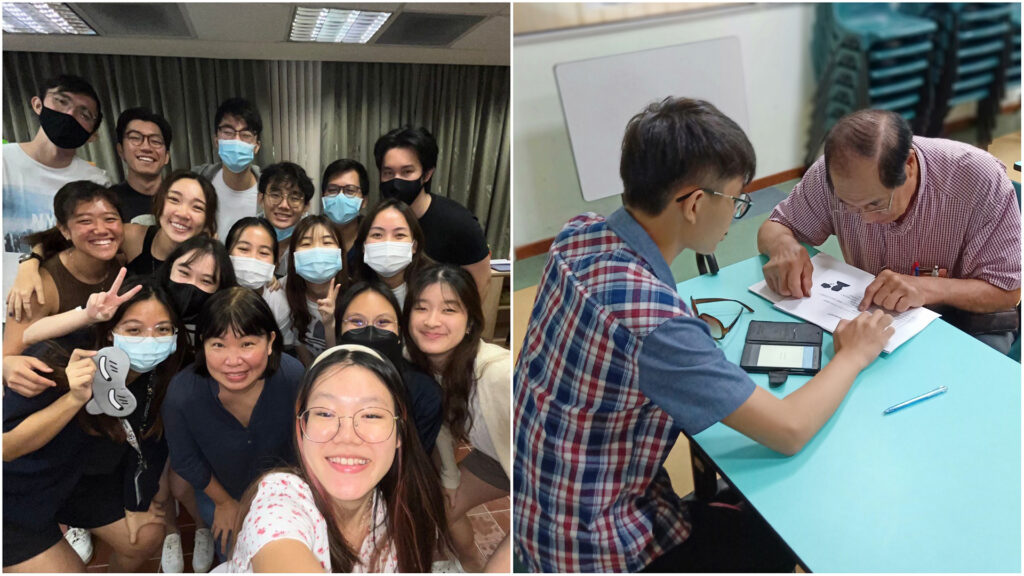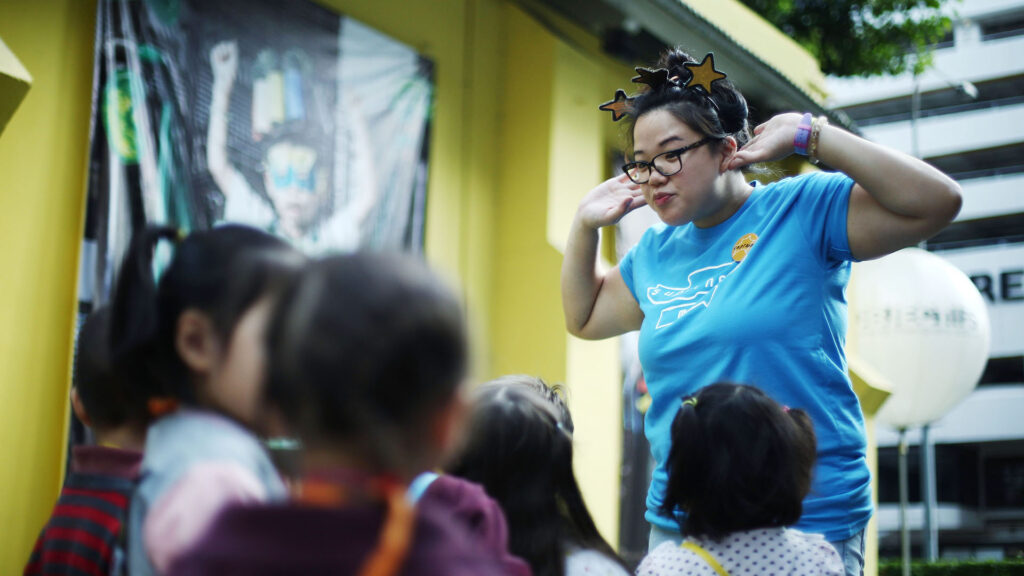NUS Social Work: Nurturing Change Agents to Serve the Community
March 21, 2023
- To mark this year’s World Social Work Day on 21 March 2023, hear from two passionate social work students, Year 2 undergraduate Freddy Ow Yong and Master's student Jean Loo, about their aspirations in choosing social work as a career and profession.
Social workers in Singapore play a vital role in helping, supporting and empowering vulnerable individuals and families in the community. Over the years, the social service landscape has evolved rapidly due to an ageing population, the rise of digital technology such as social media, and global destabilising events like the COVID-19 pandemic.
A key partner in the social work education landscape is the Department of Social Work at the NUS Faculty of Arts and Social Sciences. Established in 1952, the Department pioneered and trailblazed social work education in post-war Singapore. Offering just a two-year diploma course in those days, the Department has since expanded to offer a suite of programmes at the undergraduate, post-graduate diploma, Master’s and PhD levels.

Now widely recognised as a leading international institute for social work education, practice and research, it counts many in the social work profession among its alumni – one notable example being former Singapore President S R Nathan, who was among the pioneer batch of social work students at the then University of Malaya.
To mark this year’s World Social Work Day on 21 March 2023, hear from two passionate social work students, Year 2 undergraduate Freddy Ow Yong and Master's student Jean Loo, about their aspirations in choosing social work as a career and profession.
Tell us something about yourselves. What sparked your interest in social work?
Freddy: ‘Pay it Forward' is a phrase I strongly believe in. Helped by various mentoring figures and welfare organisations across my life, I want to pay forward the kindness I received to those in need. Previously, I was pursuing a diploma in Psychology Studies at Ngee Ann Polytechnic. During that time, I did my internship at Yong-en Care Centre and had the privilege of shadowing a social worker and assisting his work. That experience was especially impactful for me, as I found great fulfilment and purpose serving the residents living in the Chinatown community. The opportunity to witness their growth and achievements, no matter how small, first-hand, was incredibly rewarding, and that sparked my interest in social work.
Jean: I was trained as a journalist and documentary photographer focusing on social issues. With an interest in the field, as well as community arts, I went on to start a ground-up inclusive arts movement, Superhero Me, which allowed me to develop strong relationships with families across various disability types. It was there that I developed my passion in disability inclusion which seeks to provide people with disabilities with the same opportunities to participate in society as others. It was also there that I witnessed how a social worker helped a child in a complex family situation in a respectful and empowering manner. The incident moved me to want to learn more about social work.
I also worked at a philanthropic organisation – the Lien Foundation, and I am now with the Rainbow Centre serving as Deputy Director of the Advocacy and Community Engagement team.

Freddy: The field placement module which attaches students to social service agencies to help them apply their knowledge from the classroom in real-world settings stood out for me.
I like that our professors are receptive to hearing students’ opinions, and that my classmates are some of the most empathetic and understanding individuals I have ever met. They are a source of support in my studies and personal life.
Currently, I serve as the President of the Society of Social Work Students (SSWS) in NUS, working alongside inspiring peers to serve the social work student body.
Role-play is a component that is also unique to many of our social work classes as we are given the chance to assume the roles of clients, social workers, or observers, and use the skills learned to apply to different scenarios. Through this process, we are able to provide feedback to one another and strive towards becoming better social workers.
Jean: At the Rainbow Centre, I have been exposed to projects and services, not just from an advocacy and community development perspective, but also collaborating, listening and supporting my colleagues in problem-solving. This has deepened my interest to understand social work as a way of navigating system challenges and mobilising system resources so that I might be able to contribute to better education, care and support for those we serve and enable them to achieve a quality of life.
I enrolled in the Master of Social Work programme at NUS to become more effective at my work, and I like that the coursework-based programme allows me to continue working and applying what I learn to my work at the same time. I really enjoyed the modules on the management of human service organisations and disability social work, which allows me to act on my passion in disability inclusion by understanding how to navigate challenges as a young leader.
Working and studying at the same time is a balancing act, but I always look forward to coming to classes because of the conversations I have with my classmates and lecturers which are encouraging and recharging.

What are your plans after graduation?
Freddy: I am eager to embark on my career journey as a social worker working at a family service centre that caters to the needs of individuals or families from low-income backgrounds. As I am from a low-income family, I want to help those who are poor, given my personal experience growing up in a similar setting.
Jean: I believe that this graduate degree will enable me to deepen my understanding of social services and understand perspectives by different professionals. Eventually, I aspire towards non-profit leadership and management, to influence systems with creativity and community and inspire new solutions to tackle old problems.
This story first appeared on NUSnews on 21 March 2023. Singapore has identified the Care Economy, which includes social work, as one of three growth areas in the recent inaugural Skills Demand for the Future Economy report. Thus, the demand for trained social work professionals to address complex community challenges is expected to grow. If you are interested in entering the field, visit the NUS Social Work website to learn more about our social work degree programmes.

